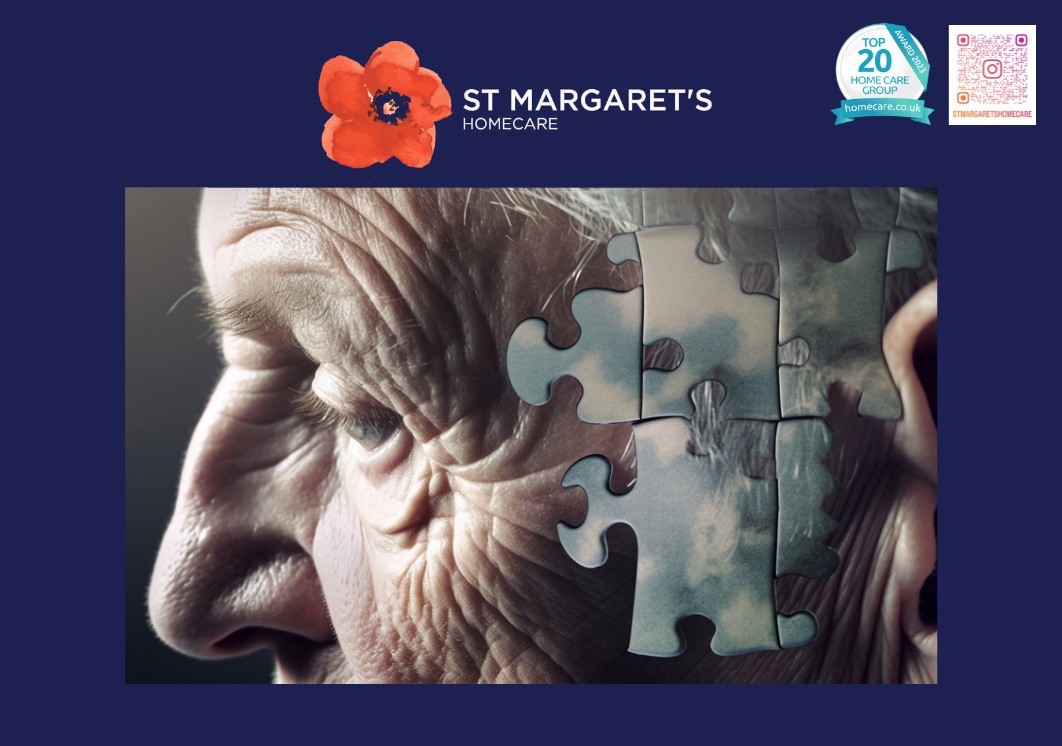
Posted in: Blogs
A dementia diagnosis for a parent or loved is an unsettling experience and will inevitably trigger a wave of questions and concerns about the road ahead. It’s natural to feel a mix of emotions and to want to provide the best possible care, especially if your parent lives alone.
To help with this journey it’s important to understand how dementia affects individuals, how it progresses over time, and when it may become necessary to consider home care.
Understandably, your initial instinct will be to offer care and protection to your parent. However, it’s important to be well-informed about how to care for a parent with dementia at home. Understanding the care options available is a key part of the journey. Engaging in open discussions with your parent or loved one about their preferences and life choices is vital to ensure their wishes are respected and their needs are met.
Together, you can craft a personalised care plan that is safe and aligns with their unique requirements, offering much-needed reassurance to everyone. The goal is to provide the best possible support while maintaining their comfort and dignity throughout their journey with dementia.
How Dementia Progresses: Understanding the Stages
Dementia is a condition that unfolds gradually, with distinct stages that bring about various challenges for both individuals and their caregivers. Understanding how dementia progresses can help you plan for the care and support needed at each stage of the journey.
Early-Stage Dementia: The Beginning
In the early stages, dementia symptoms are relatively mild. Individuals often maintain their ability to drive, work, and participate in community activities without specialised care. However, it’s essential to be aware of early signs, as highlighted by Dementia UK:
The Middle Stage: Navigating New Realities
As dementia progresses into the middle stage, daily tasks like cooking and cleaning can become more challenging. This is when the need for care options becomes evident, as symptoms become increasingly noticeable. Despite the changes, it’s possible for your loved one to continue leading a fulfilling life with the right care and support, which also enhances safety and security.
Tasks involving higher risk, such as meal preparation and medication management, often require additional support to ensure your loved one’s safety. Middle-stage dementia may also manifest in behavioural changes, including difficulty sleeping, restlessness, and mood swings. Importantly, caring for someone with dementia at home during this stage can be less confusing for them, as they remain in the comfort of their familiar surroundings.
By understanding the progression of dementia, you can make informed decisions about the care and support needed to enhance the quality of life for your loved one throughout their journey with this condition.
How Dementia Caregivers Make a Difference
As dementia progresses, homecare can play a crucial role in providing the right support for your loved one. The caregiver’s expertise ensures that the dementia care plan remains flexible, adapting to your parent’s evolving needs. At St Margarets Homecare we perform a thorough risk assessment to guarantee your loved one’s safety during various activities while offering the essential companionship and homecare services that enhance their quality of life, in the comfort of your home.
Benefits of Homecare for People with Dementia
Familiar Environment:
Staying in the familiar setting of home can help dementia patients feel more comfortable and secure, reducing confusion and anxiety.
Personalised Care:
Homecare allows for one-on-one attention tailored to the individual’s specific needs, which can be more effective than the generalised care provided in institutions.
Maintaining Independence:
Homecare supports the patient’s ability to maintain their daily routines and independence for as long as possible.
Reduced Risk of Infections:
Being at home can lower the risk of infections that are more common in communal living environments like nursing homes.
Emotional Well-being:
Regular interaction with family and friends can provide emotional support and companionship, which is crucial for mental health.
Cost-Effective:
Depending on the level of care needed, home care can be more affordable than residential care facilities.
Safety: Home care can be adapted to ensure a safer environment, with modifications like grab bars and secured areas to prevent wandering.
Learn More About Our Dementia Care Services
If your parent has recently received a dementia diagnosis, St Margarets Homecare are here to provide the help and support you need during this challenging time.
To explore our comprehensive Dementia Care services, don’t hesitate to reach out to St Margarets Homecare today.
We are committed to offering compassionate and professional care to enhance the well-being of your loved one.
